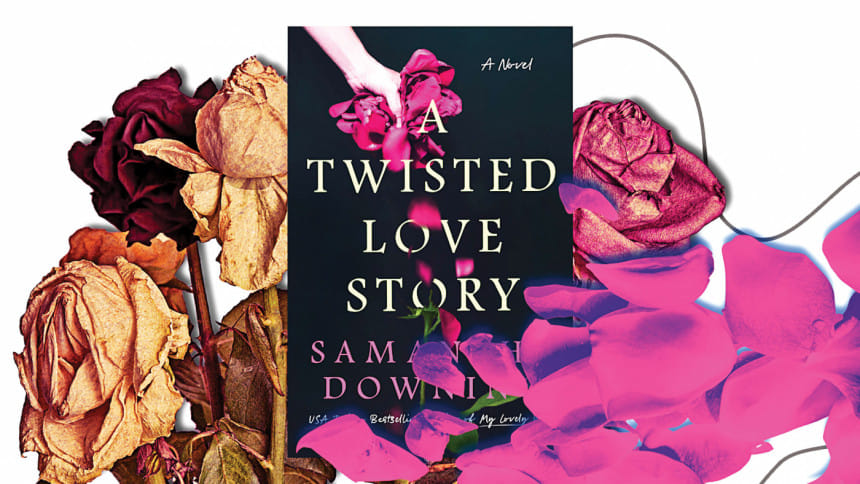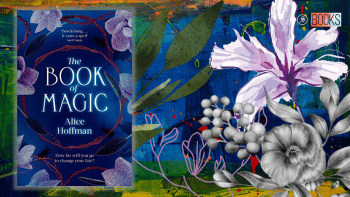Twistier than a jilapir pyatch

It's a truism to say that modern life is complicated, but even a couple of decades ago, it would have been hard to predict the things we are dealing with today. For example, while seeking a partner by meeting a person that someone you know has vouched for—or going out with a person met through circumstance—has always been a fraught issue, it is probably safe to say that romance these days has become increasingly problematic, particularly post-internet! If you don't believe me, ask the distraught parents of rural Bangladesh experiencing the phenomenon whereby their kids are running off and getting married after a Facebook "love affair"...
But even in the classic movie When Harry Met Sally, you find two friends entertaining each other with stories of their dating disasters before, thankfully, they figure out their mutual attraction—something that should have been evident to them years ago.
Of course, not all dating experiences result in love. And when they do, not all love stories end well. And that's the case even if your surname is neither Capulet nor Montague.
Take the couple featured in Samantha Downing's new book. Wes and Ivy have known each other for a long time, but somehow they just can't seem to work things out. And yet they are both unable to close the chapter on their relationship and move on. In fact, these two take the whole "it's complicated" relationship status to a new level. They have one heck of a past, and a present that is deeply problematic, so does their relationship have any future at all?
In some ways, each is the love of the other's life. When the relationship between Ivy and Wes works, it works beautifully. When it doesn't, it is the stuff of nightmares. And where this couple is concerned, that is really no exaggeration.
Which is why they have told each other innumerable times that it is over, only to rescind that decision and find themselves back together again—apparently very happy.
The problem is, their happiness just doesn't last. And the fall-out can be dangerous, as it was on one memorable occasion, many years ago, binding them together in a shared secret of monumental proportions.
With each iteration of their "make-up and break up" process, the stakes get higher, as the levels of toxicity inch inexorably upwards. Both Ivy and Wes are aware of this, to some extent, but they don't seem to be able to prevent themselves from ratcheting things up further. After all, one protagonist is named after a stubbornly-rooted and poisonous plant, while another shares his name with a film director who haunts our nightmares, on Elm Street and elsewhere.
After their most recent falling-out, Ivy decides that it would be "fun" to get Wes's attention by doing something really outrageous. So she reports him as a stalker to a policewoman working in the sex crimes unit. But this time, Ivy has gone too far, and the consequences will be devastating. As, really, they should be.
Demonstrating the profound unhealthiness of their connection, Wes finds this move on Ivy's part amusing, and it kicks off yet another round of their relationship. The point at which things spiral out of control is when Karen, the policewoman, decides to look into the matter further, on her own initiative. And it turns out, Karen has her own agenda when it comes to cases like these.
Meanwhile, things are also getting more complicated at his end than Wes realises. Bianca, an administrative assistant in his office, also has her own agenda—and an insatiable level of curiosity that is inadvertently activated by the policewoman's visit to Wes's office.
And if all this were not complicated enough, these new developments risk exposing Wes and Ivy's shared secret from the past, which would really set the cat in among the pigeons.
This is an interesting read and well worth your time, especially if you enjoy reading suspenseful stories about complicated relationships. Not least because many couples today justify some pretty bizarre behaviour in the name of love. Most of us will likely know of at least one such case. Many will know of more than one—which may or may not be as extreme as the relationship between Wes and Ivy. Chances are, the younger you are (as adults), the more likely you will be to know of such instances.
Continuing on a serious note, this book works well as a cautionary tale about red flags. Too often, people stay in relationships that are dangerous to their mental health. And it's important to know when enough is enough, and even more important to know when to move on, however attracted or invested a person may be in a relationship. Because, like Ivy and Wes, the fall-out of staying may well be more than you bargained for.
Finally, while Wes and Ivy undoubtedly have a toxic relationship, Bianca and Karen are pretty strange people too. The story emerges from all four points of view, and is disturbing at multiple levels. I ended up feeling very glad that this was fiction. Because clearly, it's not just the love story that's twisted here!
Farah Ghuznavi is a writer, translator and development worker. Her work has been published in 11 countries across Asia, Africa, Europe and the USA. Writer in Residence with Commonwealth Writers, she published a short story collection titled Fragments of Riversong (Daily Star Books, 2013), and edited the Lifelines anthology (Zubaan Books, 2012). She is currently working on her new short story collection and is on Instagram @farahghuznavi.

 For all latest news, follow The Daily Star's Google News channel.
For all latest news, follow The Daily Star's Google News channel. 









Comments